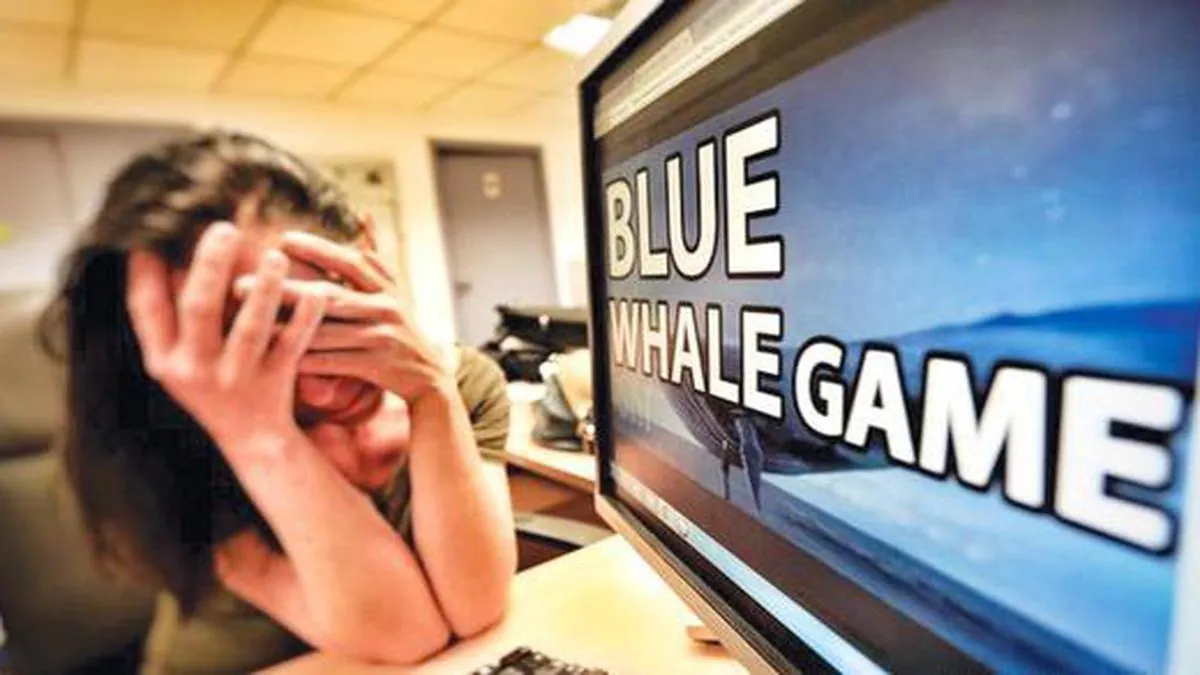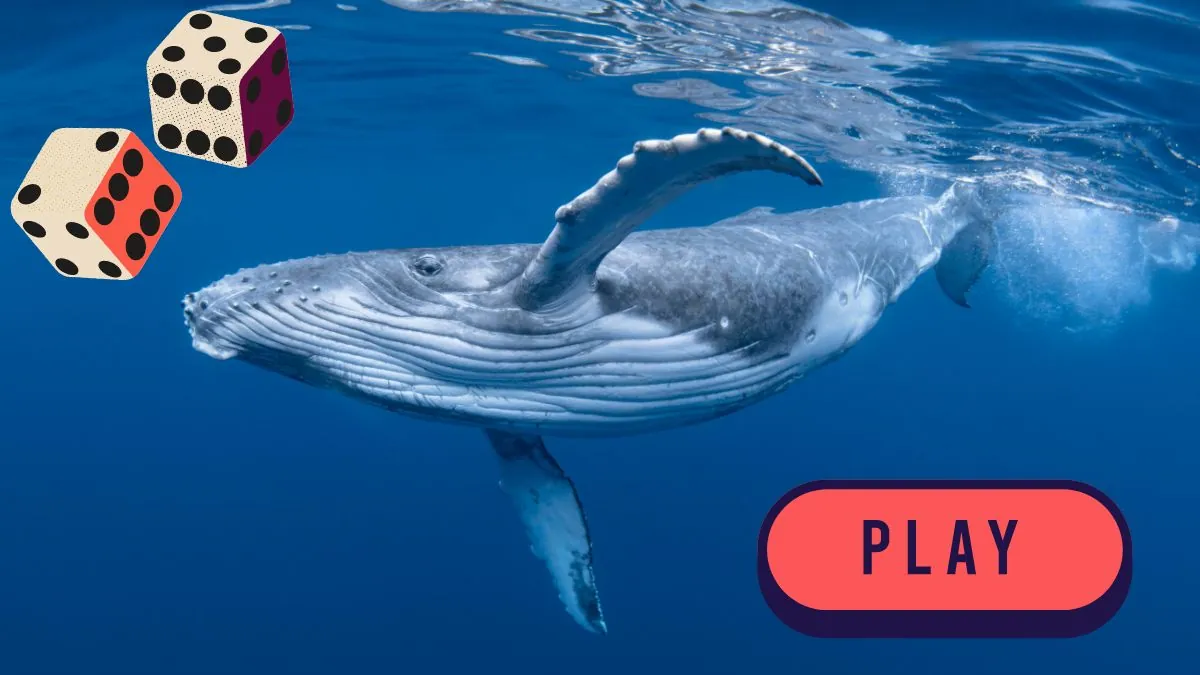In recent years, the “Blue Whale Challenge” has become synonymous with a disturbing and widely reported online phenomenon linked to a series of suicides. This so-called “game,” said to involve escalating tasks culminating in self-harm and suicide, has attracted significant global attention and concern. Despite extensive media coverage and sensationalist reporting, the true nature and extent of the Blue Whale Challenge remain subjects of debate. This article delves into the origins, global reactions, skepticism, and the real impact of this alleged online suicide game.
Suspects and Arrests
Philipp Budeikin
Philipp Budeikin, a 21-year-old former psychology student from Russia, is the most notorious figure associated with the Blue Whale Challenge. Budeikin claimed to have invented the game in 2013, stating that his goal was to “clean society of biological wastes” by encouraging individuals he deemed worthless to commit suicide. Despite initially denying his involvement, he later confessed to inciting the suicides of at least 16 teenage girls. Budeikin was arrested in 2016 and sentenced to three years in prison on charges of inciting suicide.
Other Arrests
In addition to Budeikin, several other individuals have been implicated in relation to the Blue Whale Challenge:
- Ilya Sidorov: In June 2017, a postman named Ilya Sidorov was arrested in Moscow for allegedly setting up a Blue Whale group. Sidorov claimed to have persuaded 32 children to join his group and follow his commands, leading to self-harm and suicide.
- Nikita Nearonov: In June 2018, Nikita Nearonov, a financial analyst, was arrested for allegedly masterminding the Blue Whale game. Nearonov was accused of grooming 10 underage girls, two of whom survived. He reportedly viewed the game as a hobby and held contempt for teenagers, believing they deserved to die.
Legal and Social Responses
The arrests and legal actions against these individuals have been part of a broader effort to address the perceived threat of the Blue Whale Challenge. In Russia, the government enacted laws to impose criminal penalties on those who incite minors to suicide. However, the effectiveness of these measures in combating the broader phenomenon remains debated.

Origins and Development
The term “Blue Whale Challenge” first emerged in Russia in 2016. According to reports, the game purportedly consists of a series of tasks assigned to participants over a 50-day period. These tasks, starting from seemingly benign activities like waking up at odd hours, gradually escalate to self-harm and ultimately culminate in a final task demanding the participant’s suicide.
The name “Blue Whale” is believed to have several possible origins. Some reports link it to a song by the Russian rock band Lumen, which metaphorically refers to a whale stranded on a beach. Others suggest it symbolizes the act of beached whales, which die after becoming stranded. Despite these theories, the exact origin of the name remains unclear.
The concept first gained media attention in May 2016, following an article in the Russian newspaper Novaya Gazeta. The article linked several unrelated suicides to membership in a group named “F57” on the Russian social network VK. This coverage triggered a moral panic in Russia, with claims that the game was responsible for numerous teenage suicides. However, these claims were criticized for lacking concrete evidence, and no direct causal link was established between the group’s activities and the suicides.
The Alleged Game Mechanics
According to BBC reports, the Blue Whale Challenge operates through a relationship between an administrator and a participant. Over the course of fifty days, participants receive daily tasks from the administrator. These tasks initially appear harmless, such as watching a horror movie or waking up early, but progressively become more harmful. The final task reportedly requires the participant to commit suicide.
Research into the mechanics of the game reveals inconsistencies and skepticism. The tasks assigned in the game often lack concrete evidence or verification, and many reports suggest that the game may not exist as described. Instead, it may have evolved into a narrative used to explain tragic suicides and self-harm incidents.
Global Reactions and Responses
The alleged Blue Whale Challenge has prompted widespread reactions from governments, media, and communities around the world. Many countries have issued warnings, conducted investigations, and attempted to block or ban the game.
Russia
In Russia, the Blue Whale Challenge became a major news story, with claims of hundreds of suicides linked to the game. Authorities investigated numerous cases, and the Russian Duma passed legislation imposing criminal penalties for creating pro-suicide groups on social media. Philipp Budeikin, a former psychology student who claimed to have invented the game, was arrested and convicted for inciting suicide. However, the sensationalism surrounding the case has been criticized, and the actual impact of the game remains uncertain.
India
India has also been deeply affected by the Blue Whale Challenge narrative. Reports in 2017 linked several suicides and self-harm incidents to the game. The Indian government issued advisories and requested internet companies to remove links related to the challenge. Despite these efforts, many commentators have accused the media and government of creating a moral panic. An investigation by the Indian government later found no conclusive evidence linking the Blue Whale Challenge to these incidents.
Brazil
In Brazil, the Blue Whale Challenge led to public outcry and the creation of counter-movements like the “Baleia Rosa” (Pink Whale), which aimed to promote positive activities and combat depression. Despite media reports linking the game to self-harm, official investigations did not confirm any direct connection.
United States
In the United States, the Blue Whale Challenge has been the subject of warnings from schools and authorities. While there have been isolated reports linking suicides to the game, the number of confirmed cases is low. The San Antonio Police Department, for instance, investigated a suicide linked to the game but did not mention it in their official report.
Other Countries
Many other countries have also reported on the Blue Whale Challenge, with varying degrees of skepticism and concern. In Egypt, Kenya, and other regions, authorities have attempted to block the game or issue warnings. However, the true extent and impact of the game remain unclear.
The Skepticism and Criticism
The Blue Whale Challenge has been criticized by experts and skeptics who argue that the phenomenon may be largely exaggerated or fabricated. Critics argue that the media coverage often lacks evidence and that the narrative of the game serves as a way to explain tragic events.
Ben Radford, an American skeptic, has compared the Blue Whale Challenge to previous moral panics, suggesting that it represents a “moral panic du jour.” Radford and other commentators believe that the game’s existence may have been sensationalized, with reports linking it to unrelated incidents of self-harm and suicide.
Dr. Achal Bhagat, a Delhi psychiatrist, has suggested that the Blue Whale Challenge might be a narrative used to explain personal experiences and mental health issues. The widespread media coverage and moral panic surrounding the game may have contributed to its mythological status, with some individuals adopting the narrative of participation even in the absence of concrete evidence.
The Impact on Youth and Online Safety
Regardless of the game’s actual existence, the Blue Whale Challenge has highlighted important issues related to online safety and mental health. The phenomenon underscores the need for greater vigilance and awareness regarding online challenges and harmful content.
Online safety experts emphasize the importance of monitoring and protecting vulnerable individuals, particularly young people, from harmful online activities. The Blue Whale Challenge serves as a reminder of the need for proactive measures to address cyberbullying, mental health issues, and the impact of sensationalist media coverage.
Educational initiatives, parental guidance, and mental health support play crucial roles in addressing the risks associated with online challenges. Schools and communities must work together to promote awareness, provide support, and create safe online environments for young people.
Conclusion
The Blue Whale Challenge remains a complex and controversial topic, characterized by a mix of verified facts, sensationalism, and skepticism. While the true extent of the game’s impact is difficult to ascertain, the phenomenon has highlighted critical issues related to online safety, mental health, and media responsibility.
As we navigate the digital age, it is essential to approach such phenomena with a critical eye, seeking evidence-based understanding and fostering open discussions about mental health and online safety. By addressing these issues with empathy and vigilance, we can better protect vulnerable individuals and create a safer online environment for all.
This Article Includes










